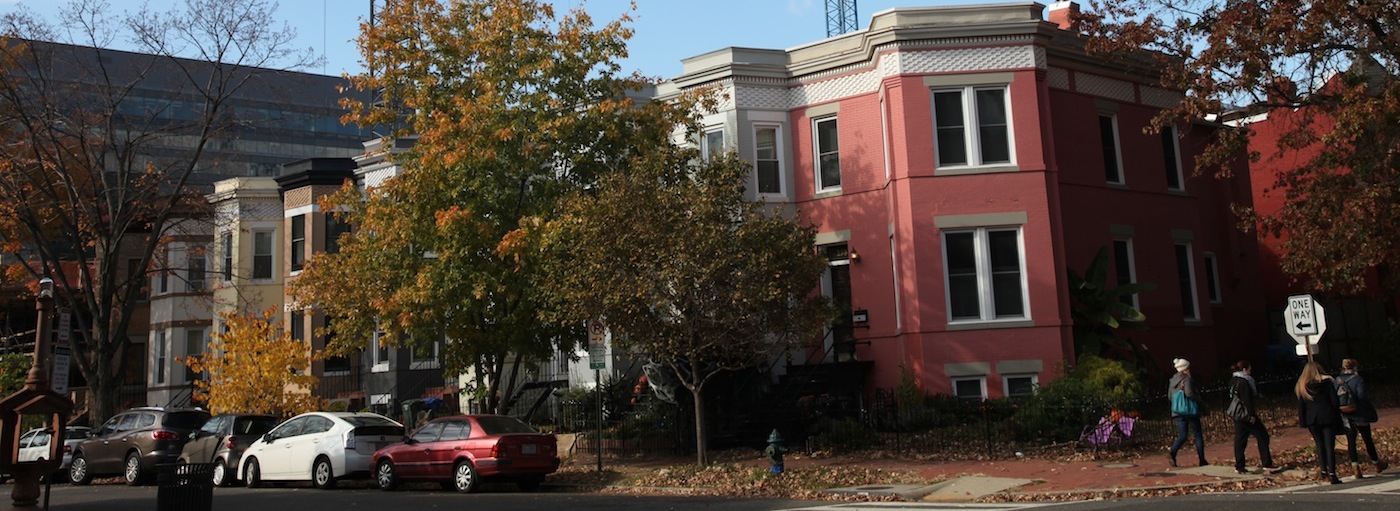
Washington, DC is one of the most expensive places in the country to live. As many low-income residents continue to face challenges in finding affordable housing, the new city administration, led by Mayor Muriel Bowser, has emphasized the necessity of preserving existing affordable housing and building new affordable units to help meet those needs.
Today, the DC Preservation Network's Preservation Strategy Working Group, of which I was a member, is unveiling publicly its recommendations for an affordable housing preservation strategy for the city. Maintaining Economic Diversity and Affordability: A Strategy for Preserving Affordable Rental Housing in the District of Columbia proposes an explicit preservation policy for the city to adopt:
The District of Columbia recognizes that to maintain and increase affordable housing options for residents it must preserve existing affordable housing in addition to creating more affordable units. Thus, it will strive to preserve wherever possible and practicable the affordability and sustainability of its existing affordable housing stock. To do so it should dedicate substantial additional funding to preservation and adopt goals and criteria for allocating resources to achieve this objective.
The document also provides a set of goals and criteria for preserving affordable housing, discusses methods and tools available to the city to achieve these goals, and makes recommendations on the best ways to implement the preservation strategy.
The DC Preservation Network was formed in 2007 to provide a forum for city housing agencies, the US Department of Housing and Urban Development, community-based organizations, and affordable housing developers to plan and coordinate approaches to preserving affordability in at-risk properties.
Co-convened by the Coalition for Nonprofit Housing and Economic Development and NeighborhoodInfo DC, network members meet monthly to discuss information in the preservation catalog, a database on assisted multifamily properties. Network members have been effective in organizing tenants and reaching out to owners and managers to preserve affordable units in a number of properties.
But challenges remain. Several older buildings, such as Barry Farm and Brookland Manor, are slated for redevelopment. Residents are worried about displacement and the potential loss of affordable units. From 2006 to 2014, DC lost at least 1,000 units of assisted housing, and the DC Preservation Network identified another 1,750 units as at risk. Further, an additional 13,700 units have subsidies that will expire by 2020 and are at possible risk of loss.
The city needs to redouble its efforts to preserve affordability wherever possible, but those actions must be coordinated and make best use of limited resources. The strategy proposes criteria for prioritizing preservation efforts. Properties that receive federal subsidies, serve vulnerable populations, and maintain economic diversity in neighborhoods, for example, would receive greater priority for city attention and funding.
The strategy also recommends DC government create a preservation team made up of top agency officials and appoint a senior staff person to coordinate preservation work and act as a liaison with the DC Preservation Network.
The adoption of a formal preservation strategy, coupled with the commitment of the DC Preservation Network members and the data in the preservation catalog, provides a firm foundation for the city to tackle aggressively its affordable housing challenges. By implementing a robust strategy, backed up by key partnerships and data, Washington, DC could emerge as a national leader in affordable housing preservation.
Map sources: DC Office of Tax and Revenue real property data in constant 2013 dollars and DC Preservation Catalog data tabulated by NeighborhoodInfo DC.
Tune in and subscribe today.
The Urban Institute podcast, Evidence in Action, inspires changemakers to lead with evidence and act with equity. Cohosted by Urban President Sarah Rosen Wartell and Executive Vice President Kimberlyn Leary, every episode features in-depth discussions with experts and leaders on topics ranging from how to advance equity, to designing innovative solutions that achieve community impact, to what it means to practice evidence-based leadership.